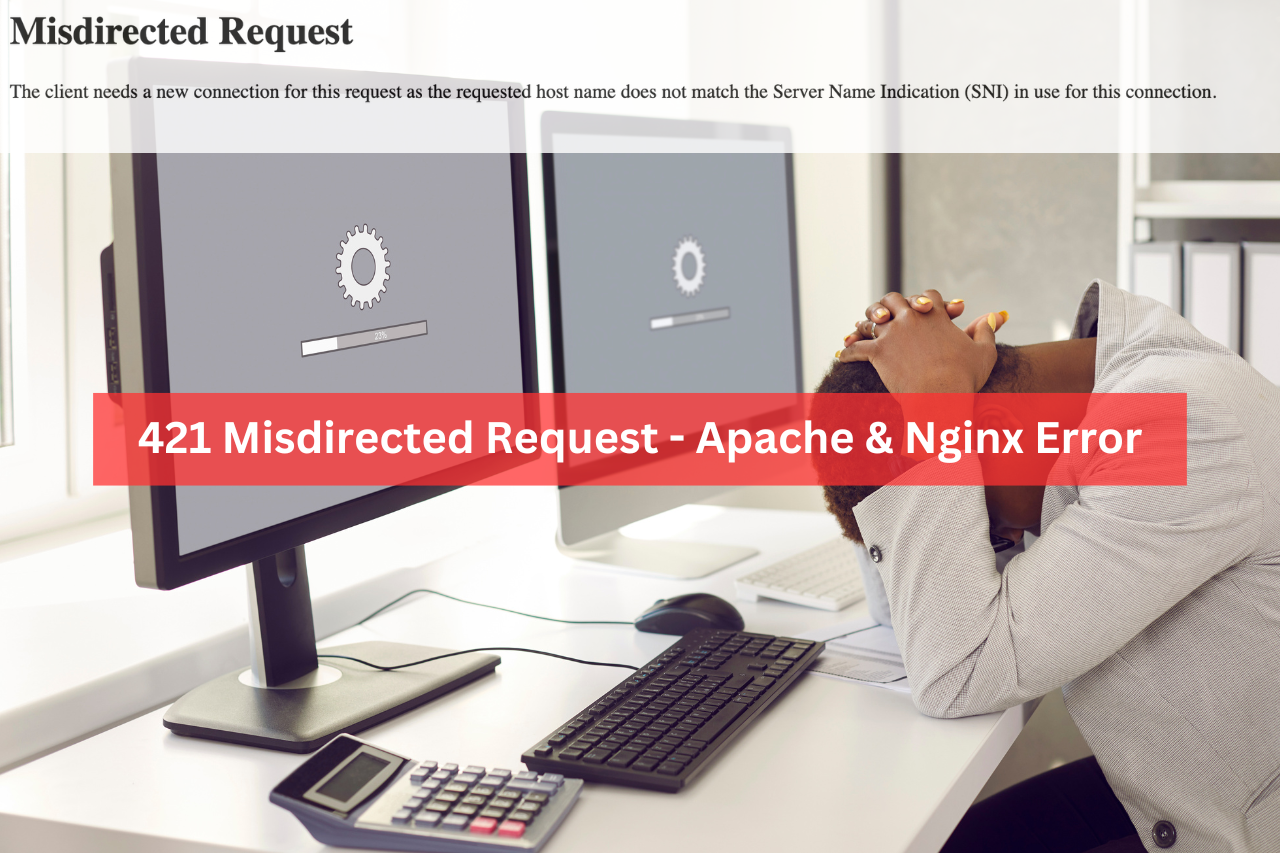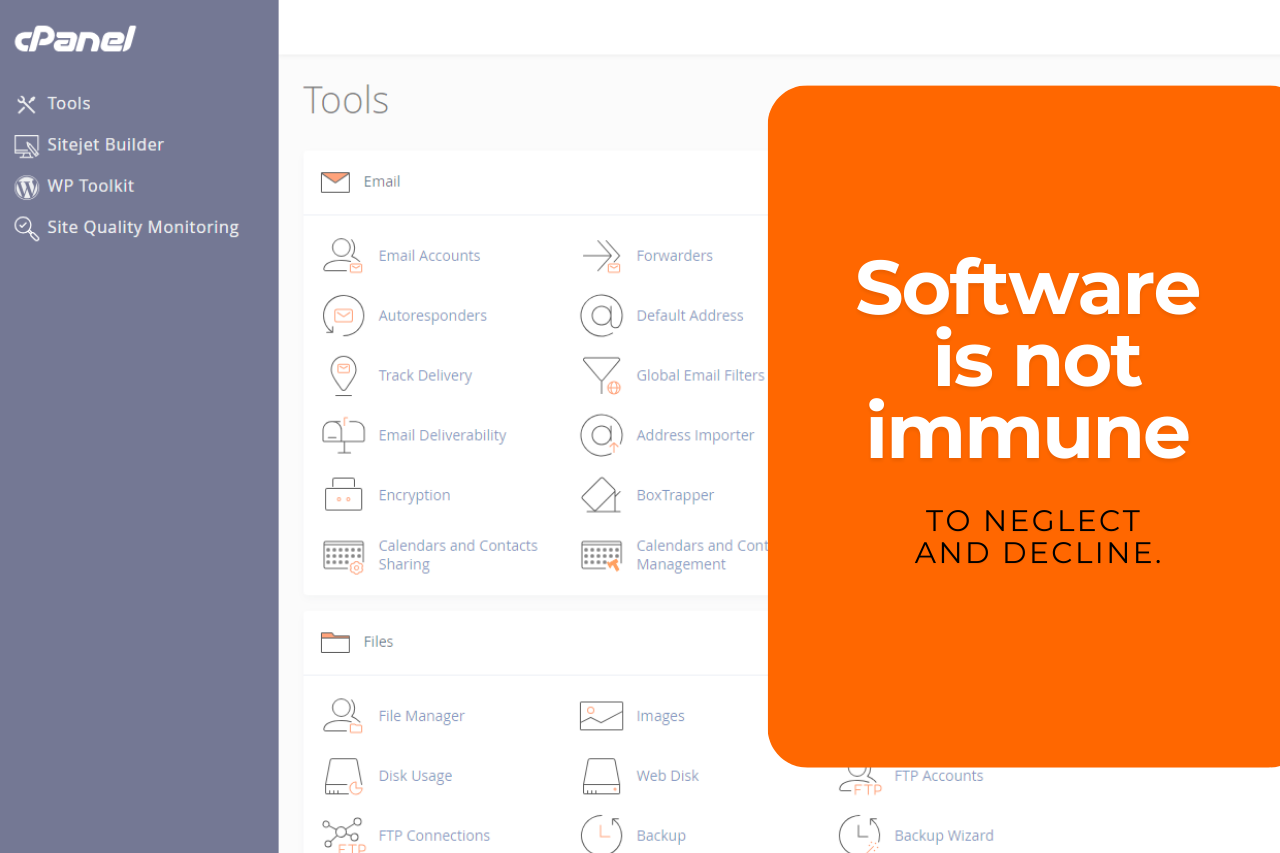If you’re seeing this 421 Misredirected Request Error on your site today, you’re not alone!
Over the past day, multiple clients reached out to us with an urgent issue — their websites suddenly went offline and started displaying a “421 Misdirected Request” error. If you’re seeing this message on your site, you’re not alone.
This is what the error typically looks like:
421 Misdirected Request
The client needs a new connection for this request as the requested host name does not match the Server Name Indication (SNI) in use for this connection.
What Caused the Problem?
This issue stems from a recent ApacheApache is a popular open-source web server software that has been widely used since its inception in 1995. It is considered to be one of the most stable and reliable web servers in the industry, powering more than half of all websites on the internet. More update that affects servers using both Apache and NginxNginx, also known as "engine x," is a versatile server software that functions as an HTTP and reverse proxy server, a mail proxy server, and a general-purpose TCP/UDP proxy server. The software was initially created by Igor Sysoev. More, especially those running PleskPlesk is widely used by hosting providers, web developers, and system administrators to simplify the management of web hosting environments. It supports various operating systems like Linux and Windows and is compatible with multiple web servers, including Apache and Nginx. More or cPanel servers..
In short, Apache introduced a security update that enforces stricter rules around how HTTPS requests are handled. One of these changes impacts how server name information is passed between Nginx and Apache. By default, Nginx does not forward the server name (via SNI), which now causes Apache to reject the request, resulting in the 421 error. This issue has also affected CloudLinux servers. However, CloudLinux has released a patch to address the problem. Specifically, you’ll need to enable their testing repository within EasyApache and then update Apache to the fixed version.
Plesk has acknowledged this widespread issue and published a support article here:
🔗 Websites hosted in Plesk are not accessible after a recent Apache update (421 Misdirected Request)
Who Was Impacted?
A variety of our clients with different configurations — from small businesses to mid-size agencies — experienced this error. In every case, their sites became unavailable without any recent changes on their part. This shows how third-party software updates, even from well-established platforms like Apache, can cause sudden disruption if you’re not actively monitoring your stack. If your website just went down, start by checking Apache — it’s currently the most common culprit.
How We Fixed It
We responded immediately once we identified the root cause. Here’s what we did:
-
For clients using the latest Plesk versions: We applied the latest updates (18.0.70.3 or 18.0.71.1), which include a permanent fix.
-
For non-Plesk clients: We manually edited the Nginx configuration to add the necessary directives:
-
proxy_ssl_server_name on; -
proxy_ssl_name $host; -
proxy_ssl_session_reuse off;
-
These settings ensure Nginx correctly passes the server name to Apache over SNI, restoring normal HTTPS functionality.
After applying these updates and restarting Nginx, websites were fully restored with no further issues.
Why Proactive Server Management Matters
This incident is a great reminder of why proactive server management is so important. Without regular monitoring and timely response to changes in software dependencies, your site can go down unexpectedly, potentially losing customers, damaging your brand, and causing frustration.
Our clients didn’t have to scramble to figure this out. They contacted us, and we resolved it quickly, in many cases before they even realized there was a problem. That’s the value of having a team that’s always watching, anticipating issues before they escalate, and acting fast to keep everything running smoothly.
Still Seeing the 421 Error?
If your website is showing a 421 Misdirected Request error this week (July 18, 2025), it’s likely your server has been impacted by this Apache update and hasn’t yet been patched.
Whether you’re an existing client or not, our team is ready to help. We specialize in server management, WordPress (and web application) support, and proactive maintenance. We’ll get your website back online fast — and ensure you’re protected from issues like this in the future. We’ve already patched dozens of affected servers this week with zero disruption to end users.
Reach out today and let us handle the fix before it becomes a bigger problem.




